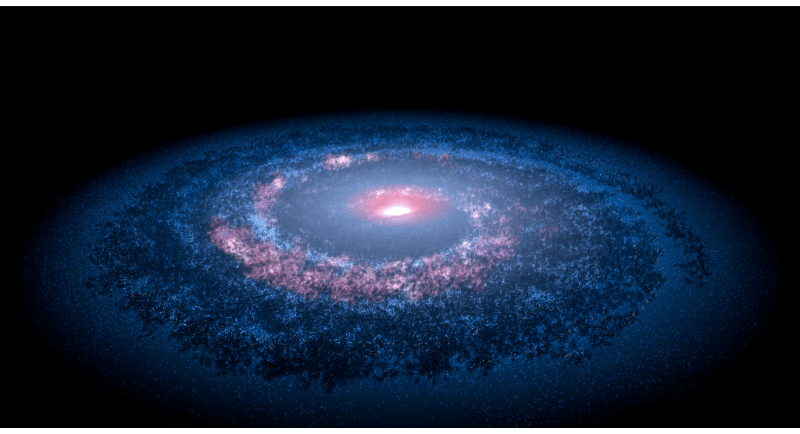Astronomical Energy: Exploring the Potential of Harnessing Cosmic Events for Humanity's Power Needs
It's intriguing to explore the possibilities of harnessing energy from astronomical events for human consumption. While it may seem far-fetched today, history has shown that human knowledge and technological advancements often lead to breakthroughs once considered impossible. In this hypothetical scenario, we'll discuss the potential future of utilizing astronomical events as energy sources.
Future of Technology Desk
10/21/20233 min read


Ever wondered how much amount of energy our Cosmos inhabits? Imagine yourself, recently astronomers have identified an intense flash of radio waves coming from the merger of galaxies about 8 billion years ago - this burst in less than a millisecond unleashed the amount of energy our Sun emits in three decades. Hundreds of such energetic events in the universe have been discovered and thousands may have been unknown to mankind.
Throughout history, humanity's quest for energy has taken us from harnessing the power of fire to the development of nuclear and renewable energy sources. However, one question lingers in the minds of scientists and visionaries: Could we ever tap into the colossal energy reserves of the universe itself? While it may appear fantastical, this article explores the speculative notion of harnessing energy from astronomical events like fast radio bursts (FRBs), supernovae, and even black hole interactions to meet our ever-growing energy demands.
The Current State of Energy Production
Before delving into the potential of astronomical energy sources, let's first acknowledge our current energy landscape. The world relies heavily on fossil fuels, which contribute to environmental degradation and climate change. Sustainable alternatives like wind, solar, and nuclear power are essential, but their limitations and challenges still loom large. Thus, the allure of tapping into the vast cosmic energy reservoir becomes all the more enticing.
Astronomical Energy Sources: A Hypothetical Exploration
Fast Radio Bursts (FRBs)
Fast radio bursts are brief, powerful flashes of radio waves originating from distant galaxies. While their exact origins remain a mystery, the sheer magnitude of energy they release is staggering. To harness FRBs for energy, we would need to develop technology capable of detecting and capturing these radio waves and then converting them into usable electricity. The key challenge lies in the development of receivers capable of capturing such distant and transient signals.
Supernovae and Stellar Explosions
Supernovae are cataclysmic events in which stars explode, releasing vast amounts of energy. While there's no immediate way to harness energy from a supernova itself, we might someday use advanced astronomical prediction models to anticipate nearby supernovae. This foreknowledge could enable us to position spacecraft or facilities to capture some of the energy released during these events.
Black Hole Interactions
Black holes are known for their immense gravitational pull, but they also emit energy as they devour matter, often in the form of high-energy particles and radiation. The challenge here is devising a way to safely and effectively capture energy from a black hole, a concept that currently lies beyond our technological grasp.
Challenges and Ethical Considerations
It's important to acknowledge the myriad challenges and ethical concerns associated with tapping into astronomical energy sources. Beyond the monumental technical challenges, there are questions of how harnessing such energy might impact the cosmos, disrupt the natural order of the universe, or pose existential risks.
Distance and Location: These events typically occur in extremely remote and distant regions of the universe. Fast radio bursts, for example, are detected from sources that are often billions of light-years away. It is impossible to harness this energy in any meaningful way for terrestrial applications.
Energy Transport: Even if we could somehow capture the energy from these events, the energy transport from these distant sources to Earth would pose insurmountable challenges. The energy would dissipate and weaken significantly during its journey through interstellar space.
Unpredictability: Many of these astronomical events, including FRBs and supernovae, are highly unpredictable and infrequent. We cannot rely on sporadic and uncontrollable events to meet our constant and growing energy needs.
Energy Conversion: The processes by which these astronomical events release energy often involve exotic and extreme physical conditions, which would make it extremely challenging to convert the energy into a usable form on Earth.
Environmental and Ethical Concerns: Attempting to harness energy from these natural events could have ethical and environmental implications, as it might disrupt the natural balance of the cosmos and affect the ecosystems and celestial objects involved.
Conclusion
While the idea of harnessing energy from astronomical events remains speculative, it's essential to remember that many once-unfathomable concepts have become reality through human innovation. From electricity to space exploration, our history is marked by the transformation of the fantastical into the feasible. For now, our focus should remain on sustainable and terrestrial energy solutions. Still, the idea of harnessing cosmic energy remains a tantalizing vision for future generations. Perhaps, with time and technological advancement, we will unlock the potential of the cosmos to meet our energy needs.
(With AI Input)
Contacts
enquiry@economicnations.org
(xx) 98-11-937-xxx (On verification)
